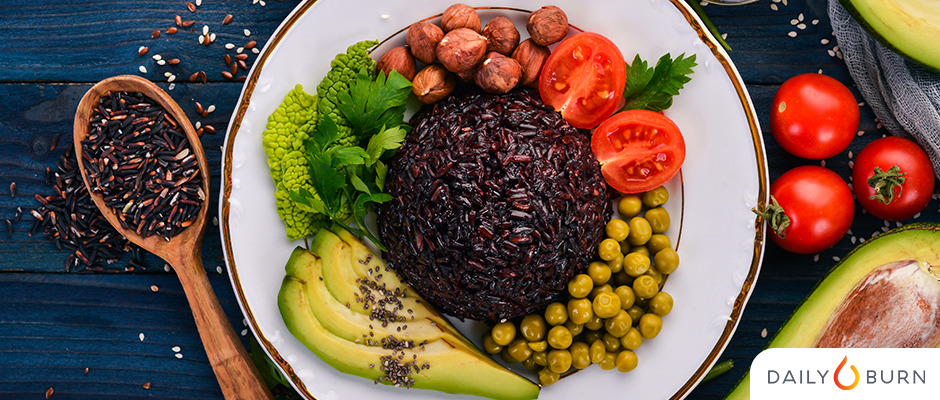
Good oral hygiene includes taking care of your teeth. It can help to prevent gum disease, decay, and other painful problems. It is also important to eat the right kinds of foods. For instance, a diet rich in raw fruits and vegetables is beneficial for maintaining a healthy mouth and teeth. These types of foods massage your gums and clean your teeth by generating more saliva. This saliva helps wash away harmful acids and sugars in your mouth.
You can help your child's dental health by encouraging them to eat fresh fruits and veggies. Encourage your child to choose fresh fruit and vegetables. Involve them in the cooking process. You could even make this a game. Use different colours when cooking. It is important to set mealtimes so that your children eat as scheduled. You should also avoid snacking, as it can cause tooth decay. Choose healthy snacks like cut-up fruits, cheese, or vegetables.

Healthy teeth can be maintained by eating a balanced diet. Reduce your intake of foods which can cause tooth loss. Drink lots of yogurt, milk, and cheese. Limit your intake of sugar. This will ensure your teeth remain strong and free of cavities. In addition, eating foods that contain calcium will help you keep your bones strong. Also, crunchy foods can stimulate saliva production which is responsible for washing away bacteria and harmful food particles.
Cheese is an important food to your child's smile. It can fight cavities and stimulate saliva generation. Some cheese components can stick to the teeth of your child and protect them against acidic plaque. Low-fat dairy products have calcium without the saturated fats that can damage your teeth. Regular dental visits are a good idea for your child, as long you brush and floss twice daily. Regular checkups can prevent any serious decay and lessen the need to have invasive treatments.
You can also benefit from fruits and vegetables. A variety of vegetables and nuts are both good for your teeth. Raw fruits and veggies can help freshen your breath, as well as fight cavities-causing bacteria. These are the most healthy foods for your teeth. There are many healthy foods that you can eat to keep your mouth healthy. These healthy foods include carrots as well as leafy green vegetables. They are also rich in calcium and iron.

Water is essential. Water is essential to your child's dental health. It is vital for your child's oral health. It reduces the chance of tooth decay. Water is crucial for strong and healthy teeth. When you're at the office, you can also ask the dentist about the best foods for your child.
FAQ
What diet supplement is best to lose weight?
Weight loss requires diet and exercise. Some people find that certain supplementation can be helpful.
Studies have shown that omega-3 fatty acid may be beneficial in weight loss. Omega-3s, essential fats, are critical for brain function and cell membrane health. They can be found as a part of seafood such as tuna, salmon, shrimp, and cod live oil.
Another study suggests that green-tea might help with weight loss. The antioxidants in green tea, catechins and other compounds may increase metabolism and promote weight loss.
Do Men Need A Gym Membership?
Men do not need a gym membership. However, your money will be more valuable if you join a gym.
Many gyms offer free trial memberships so you can try the facilities out before paying for anything.
You can use the gym whenever you like, and it won't cost anything. You can cancel or modify your membership anytime you feel you don't like it.
What is a good daily gym routine?
Regular exercise is key for staying in shape. You don't have to do the same type of exercise every day, it doesn't really matter. Consistency is key. To achieve success, you need to persevere for a long time.
Begin with a small amount of daily exercise (like walking). Gradually increase your exercise time until you are able to spend 30 minutes per day. You can choose to run, swim, weight train, do yoga or take aerobics classes.
Try to make sure you exercise on all days of the week. You should not miss any sessions unless there is a good reason.
You should wear the appropriate clothing and footwear if you are exercising outdoors. You should also consider the weather conditions that could affect your ability exercise safely.
When you exercise, drink plenty of fluids. Avoid drinking alcohol during this time because it can cause dehydration. Also, don't drink caffeine-rich beverages like tea, coffee, or cola. They may give you energy, but they will also dehydrate you.
At first, it's normal to feel tired after you finish your exercise routine. Keep going with your workouts and you'll soon feel more energized.
Statistics
- Candidates and applicants must pass all four tests at 70% (minimum level) to graduate from Basic Deputy U.S. Marshal (BDUSM) Training. (usmarshals.gov)
- By John Thompson Take a whopping 38% off a set of PowerBlock Pros. (menshealth.com)
- 10 pounds in a month is likely during a lean bulking phase, especially for beginners. (muscleandstrength.com)
- Are You One of the 20% of Guys (mh.co.za)
- Get free shipping and 25% off today. (healthline.com)
External Links
How To
How do I lose fat by exercising?
Exercise burns calories by increasing metabolism and oxygen consumption.
At moderate intensity, you will lose weight easily.
These are some tips to help you lose fat while working out:
-
Do cardio exercises such as walking, swimming, jogging, cycling, running, or elliptical training.
-
Exercise for 30 minutes three times per week.
-
Add strength training to your workouts if you are looking to lose more weight.
-
Avoid intense training. It's possible to build muscle, but not lose it.
-
Hydrate well during exercise. Water flushes out toxins and helps keep the body hydrated.
-
After exercising, you should drink low-fat protein drinks. Protein shakes are great for your muscles and energy.
-
Eat smaller meals throughout the day, so you don't feel hungry between meals.
-
Don't skip breakfast! Skipping breakfast can cause you to feel tired and sluggish.
-
Mental health is important. Stressful situations may slow down your metabolism.
-
Keep a positive attitude. Studies show that people who believe they're overweight gain more weight than those who think they look pleasing.
-
Get enough sleep. A lack of sleep makes it difficult to lose fat.
-
Active living is key. Move around at least once an hour.
-
Maintain a healthy diet. Eat right to feel satisfied and full for longer.
-
Find relaxation techniques. Tenseness can cause stress hormones to break down muscle tissue.
A balanced diet provides all the nutrients necessary for growth and development.
You should eat six small meals per day rather than three large ones. This gives your body the time it needs to process what you've eat.
For strong bones to be maintained, you need approximately 500mg of calcium per day. Calcium is available in dairy products like milk, yogurt, fortified soy beverages, orange juice, cereal, bread, and cereals.
Calcium is found in green leafy vegetables, beans, tofu, seeds, nuts, and cheese.
Vitamin D is required by the body to absorb calcium. Vitamin D can also be found in some fortified foods such as eggs, fish, and yolk.
Vitamin E plays an important role in skin health. It's found in vegetable oils, wheat germ oil, peanuts, almonds, sunflower seeds, and corn.
Zinc is essential for healthy immunity and wound healing. Zinc can also be found in legumes, oysters, meats and whole grains.
Zinc deficiency could cause fatigue, nausea, vomiting, and depression.
Too much sugar leads to insulin resistance. This results in higher blood glucose levels. Insulin resistance can lead to weight gain.
Insulin resistance occurs when the bloodstream is full of free radicals. Free radicals can be molecules with unpaired electrons that cause damage to cell membranes.
Food additives, pesticides and herbicides, as well as preservatives, smoking and radiation are all sources of free radicals.
Free radical damage can lead to cancer, heart disease, diabetes, arthritis, asthma, and aging.
Eating a well-balanced diet with antioxidants is the best way to prevent free radical damage. Antioxidants protect against oxidative damage.
Vitamin C (found on citrus fruits), Beta carotene, found in carrots and sweet potatoes, spinach and broccoli, cantaloupe (found in tomatoes, mangoes and peppers), and Vitamin E (found nuts, olive oil and avocados).
Selenium, manganese (and zinc) are other antioxidant nutrients.
Selenium helps to protect cells against free radicals and oxidative stress. Selenium can be found in Brazil nuts and liver, kidneys, liver, kidneys, shrimp, cod, turkey and lamb as well as chicken.
Copper protects the brain and eyes as well as the lungs and red blood cells. Copper can be found in shellfish and poultry as well as meat and organ meats.
Manganese plays an important role in bone structure. Manganese is found as a component of bone structure in brown rice (spinach, bananas), prunes, raisins and oatmeal.
Zinc is essential for normal growth, reproduction, wound healing, and average growth. Zn is found in lean meats, poultry, white fish and eggs.